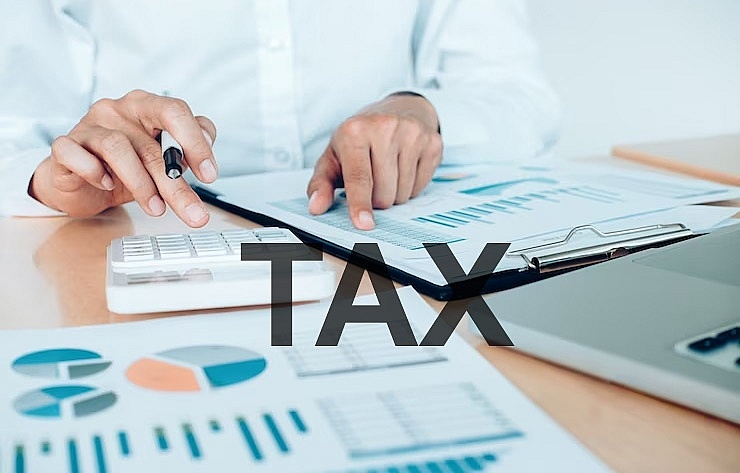Clarity sought on VAT reduction proposals
 |
On November 20, the government submitted the proposal for a 2 per cent VAT reduction for the first half of 2024 to the National Assembly (NA). This reduction will be applied to goods and services that are currently subject to a tax rate of 10 per cent. However, some experts have proposed extending the application period of the reduction until the end of 2024 and expanding the list of applicable items.
Ho Chi Minh City NA delegate Tran Anh Tuan said that currently there is still a lot of policy room as public debt has been reduced in relation to GDP, government debt is falling, and the economy is being well managed.
Therefore, some feel there is room in the fiscal policies to reduce VAT for a longer period of time. Tuan suggested applying the cut in duty to all goods to stimulate production. For example, telecommunications and real estate are highly interconnected, and when they are performing well, the markets for other related products will grow and develop.
"There needs to be fiscal policy solutions to stimulate the currently weak production, economic demand, and consumption," Tuan said.
He added that the disbursement of public investment and the 2 per cent interest rate support programme for loans has been quite slow, so this budget can flexibly allow for consumer demand stimulation.
Tuan said that the six-month period of VAT reduction will not be long enough to boost the economy.
“Therefore, instead of reducing VAT by 2 per cent, we should cut it by 3-4 per cent, do it for a longer period, and apply it to more items to have a greater impact. The policies need to run for long enough to generate practical results for people and businesses," he emphasised.
Pham Van Thinh, member of the NA Economic Committee, feels that the prospects for a global economic recovery by 2024 are not very bright.
“As the indicators related to macroeconomic balance, public debt, and budget deficit are safe, promoting domestic consumption will continue to be an important driving force for growth in 2024,” he said.
"The 2 per cent reduction in VAT in the past few years has shown its ability to stimulate domestic consumption and decrease costs for businesses, contributing to the country’s growth. Therefore, the government's proposal to extend the 2 per cent VAT reduction period is appropriate as the nation's economy is still in its recovery phase.”
"In addition, the 2 per cent reduction in VAT this year is only being applied to some groups of goods, causing numerous difficulties for accounting departments and tax officials, and requiring a lot of time to manage. Therefore, we should consider applying the VAT reduction to all items," Thinh added.
While most experts agreed with the expansion of the VAT reduction in 2024, some others raised their concerns that reducing VAT is only a short-term measure.
Nguyen Thi Viet Nga, a mamber of Hai Duong’s NA delegation, recommended clarifying the impact of VAT.
"People are meant to be the beneficiaries, but they may suffer an indirect impact if the state budget revenue is not high enough and the socioeconomic development plan cannot be ensured," Nga stated.
"Consumers would like reduced taxes because they can buy cheaper goods, but policymakers should carefully calculate and report on how the policy contributed to GDP growth and total consumption revenue over recent months," she said.
Nga also suggested carefully assessing how tax reduction affects local budgets and whether this has caused some economic targets in 2023 to be missed, especially in relation to GDP.
"We should carefully review the policy and consider the groups of goods and services it applies to, ensuring that it has the desired effect and does not impact budget revenues too significantly," she stated.
According to the Ministry of Finance, if the VAT reduction is applied to all goods and services in the first half of 2024, the budget deficit would be about VND37.1 trillion ($60.8 billion). However, if the same policy from this year is extended, the shortfall would only be around VND25 trillion ($1.05 billion).
Vietnam Report has announced the results of its survey on the prospects for 2024, in which respondent businesses recommended some key support solutions including a tax reduction extension, inflation control measures to ensure macroeconomic stability, a review and reduction of administrative procedures, the simplification of regulations related to businesses, preferential credit packages, and an improved legal framework on information transparency.
 | Global tax shift forces inevitable adjustment As the country adapts to the global minimum tax, Vietnam’s future as a prime investment destination is under the lens. Duong Hoang, partner and head of Tax at KPMG in Vietnam, offered VIR’s Luu Huong insights into this transformative phase, highlighting the synergies between Vietnam’s tax strategy and its quest to remain a magnet for foreign funding. |
 | VAFI raises concern over new tax method The Vietnam Association of Financial Investors (VAFI) has proposed not to include the option of applying special consumption tax using a mixed method in the draft revised special consumption tax law. |
 | Vietnam set to implement global minimum tax Vietnam is poised to adopt global minimum tax (GMT) regulations, a move set to impact 122 foreign investment conglomerates and strengthen the country's fiscal framework in line with international standards. |
What the stars mean:
★ Poor ★ ★ Promising ★★★ Good ★★★★ Very good ★★★★★ Exceptional
 Tag:
Tag:
Related Contents
Latest News
More News
- Vietnam sets ambitious dairy growth targets (February 24, 2026 | 18:00)
- Masan Consumer names new deputy CEO to drive foods and beverages growth (February 23, 2026 | 20:52)
- Myriad risks ahead, but ones Vietnam can confront (February 20, 2026 | 15:02)
- Vietnam making the leap into AI and semiconductors (February 20, 2026 | 09:37)
- Funding must be activated for semiconductor success (February 20, 2026 | 09:20)
- Resilience as new benchmark for smarter infrastructure (February 19, 2026 | 20:35)
- A golden time to shine within ASEAN (February 19, 2026 | 20:22)
- Vietnam’s pivotal year for advancing sustainability (February 19, 2026 | 08:44)
- Strengthening the core role of industry and trade (February 19, 2026 | 08:35)
- Future orientations for healthcare improvements (February 19, 2026 | 08:29)



























 Mobile Version
Mobile Version